Drink of death
Clouded judgment and silence over toxic liquor fatalities
LAHORE. It started with a celebration and ended in tragedy. In the second week of January, a group of friends in Youhanabad, a low-income area mostly populated by Christians on the outskirts of Lahore, procured some liquor to have a merry time.
After a night of indulgence, they went to their respective homes. That is when the toxic liquor began to poison their bodies. Three of the friends did not wake up the next day. The others started vomiting and were shifted to Jinnah Hospital.
At the hospital was another group of victims from Liaquatabad, a few miles from Youhanabad. The victims from Liaquatabad had been admitted for the same reason.
The victims remained at the hospital for three days before meeting their demise, raising the death toll from the two incidents to 14. Twelve of the victims were identified as Gohar, Nabil, Boota, Samuel Viki, Shera and Qasim Masih from Youhanabad, and Akram, Saleem, Shan, Sanni, Asim and Quma from Liaquatabad.
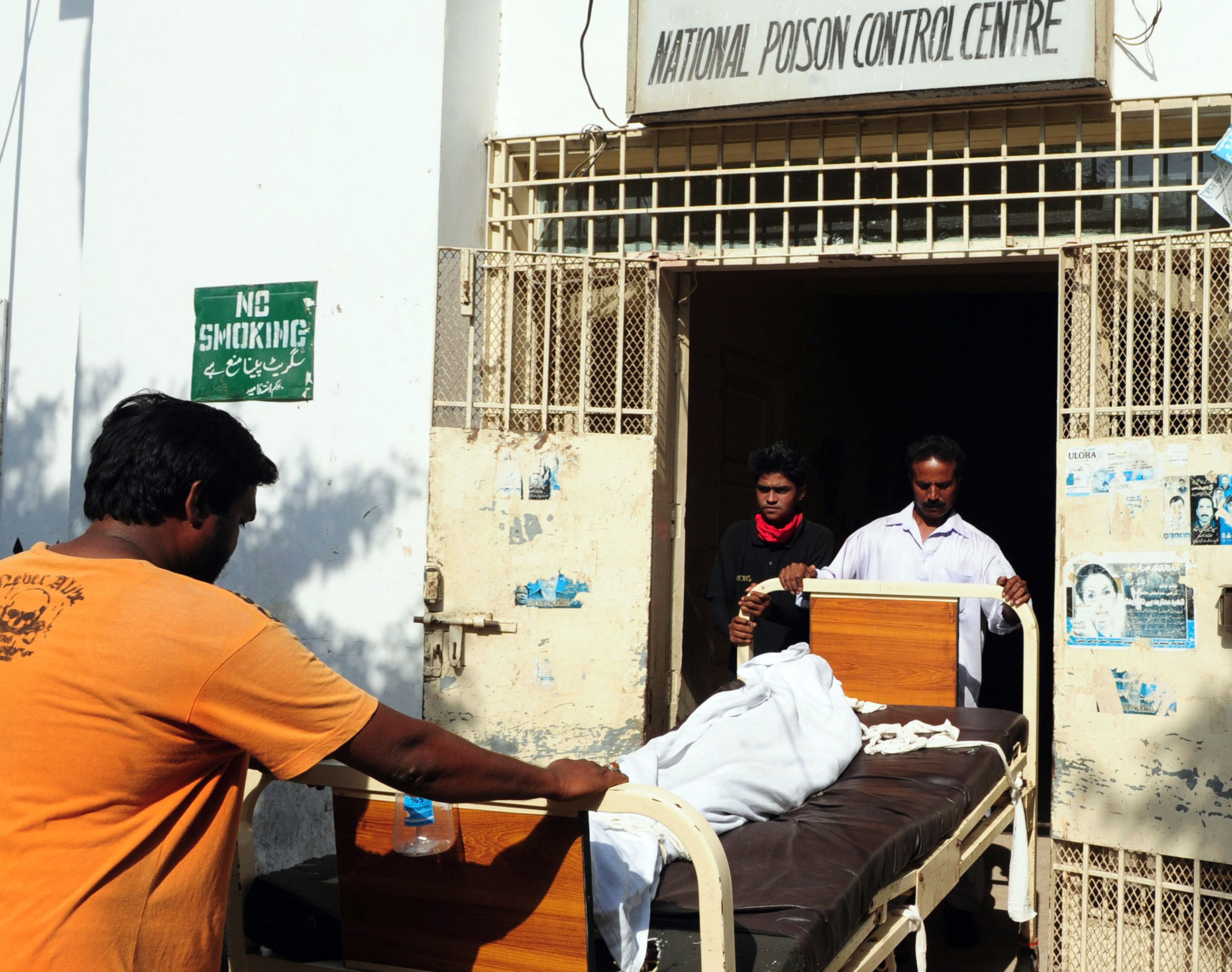
In-charge of the homicide cell at Nishtar Colony, Mehdi Kazmi said none of the victims survived to narrate what actually transpired.
An FIR was registered against unidentified suspects under murder charges on the complaint of the SHO of Nishtar Colony. None of the victims’ family members came forward to register a complaint, said Model Town SP Mustansir Feroz.
Police then initiated an investigation and arrested four suspects: Jaan Mehar Masih, a resident of Kot Lakhpat; Muhammad Asghar, a resident of Zafar Park in Badami Bagh; Muhammad Usman, a resident of Faizpur; and Muhammad Yousif, a resident of Gulshan-e-Ravi.
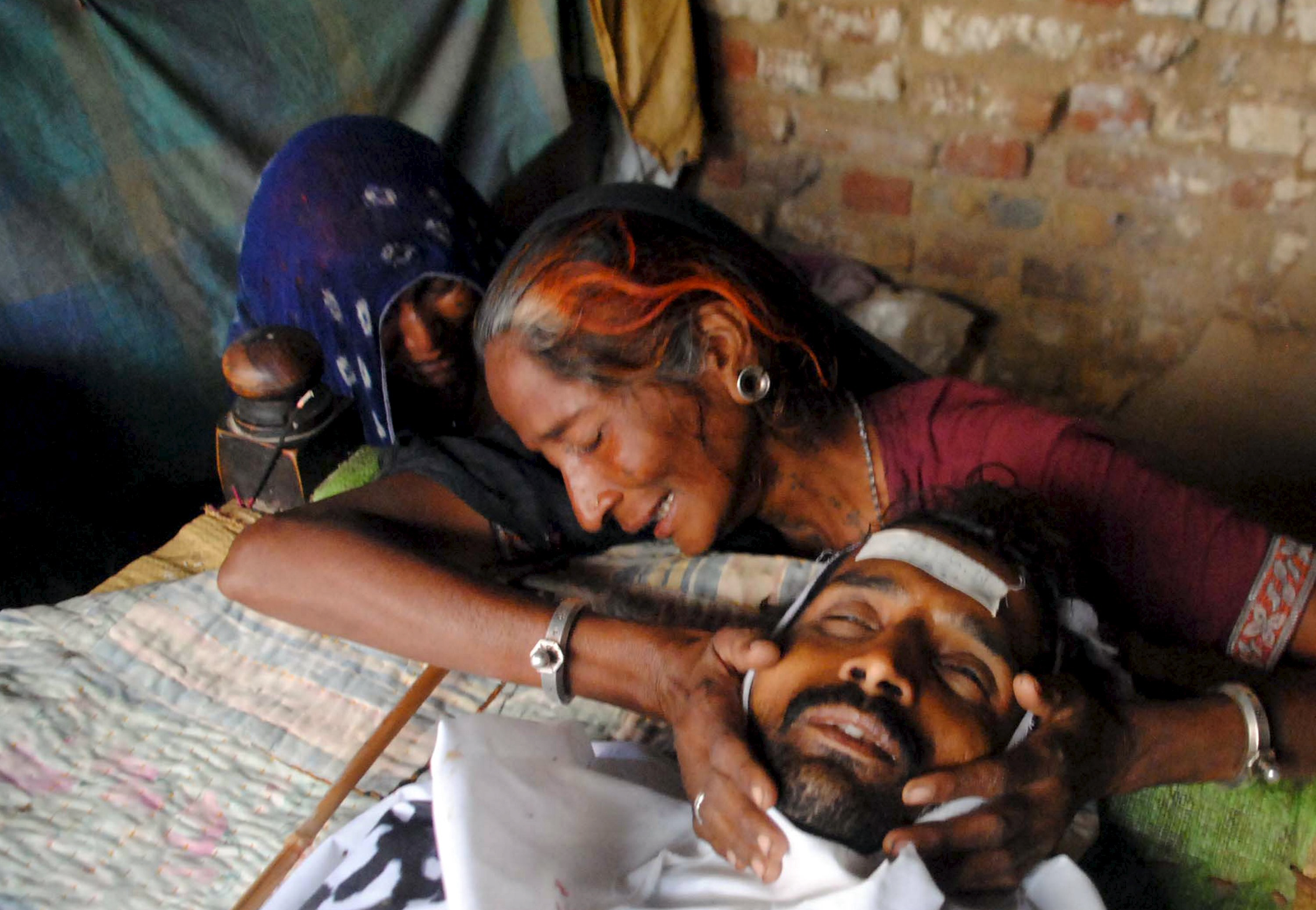
Muhammad Asghar, a pickup driver, was returning home around three weeks before the incident when he was stopped by a man on Bund Road, narrated investigation officer, sub-inspector Murad. The man offered Asghar Rs700 to transport a can, saying the tyre of his own pickup had burst. Consequently, both men set out on the journey ahead, Asghar in his pickup and the other man on his motorcycle.
Once they reached Katchery Road, the owner of the mysterious can was stopped by the police at a checkpoint near Veterinary University. Asghar went ahead and stopped at a distance, waiting for the man to follow behind. But when the man did not come for a while, Asghar took the can to his house, thinking it contained some expensive chemical which he could sell for a decent sum.
Asghar later took the can to an acquaintance, Muhammad Usman, who worked at a chemical factory. Usman told Asghar the fluid in the can was alcohol and that he could find a customer for it. Usman then contacted Muhammad Yousif, who in turn contacted Jaan Mehar Masih. Yousif sold the can to Masih for Rs20,000 at a rate of Rs180 per litre. Asghar and Usman distributed the sum equally after having a meal for Rs1,000 and paying another Rs1,000 to Yousif.
Masih later sold the alcohol to Qasim, alias Puma. The investigation officer said Qasim then sold the liquor to the now deceased victims. He added the alcohol had been adulterated to increase its volume prior to being sold to Qasim, who also died from consuming the toxic liquor. The investigation officer, however, said they could not ascertain what exactly the alcohol had been cut with.
Empty bottles of imported liquor and wine are openly sold at shops in different parts of the city, particularly on Nisbat Road and Shah Alami Market. These bottles are bought by dealers and then refilled with adulterated liquor/wine.
When news of the tragedy flashed on the media, Masih quickly disposed of the liquor he was left with. The police, however, managed to recover 30 litres of the toxic alcohol that Asghar had left at his place. The autopsy report, meanwhile, confirmed that the victims had died of consuming toxic material. The investigation officer said they were now waiting for a forensic report for further details on the cause of their demise.
What is toxic liquor?
A food scientist, who chose not be named, told The Express Tribune toxic liquor can be broadly divided into two categories. In the first instance, quality liquor/wine is adulterated through different means. The dealer buys a branded bottle and then adds chemicals, tablets, industrial methyl (commonly known as spirit) and scents.
Empty bottles of imported liquor and wine are openly sold at shops in different parts of the city, particularly on Nisbat Road and Shah Alami Market. These bottles are bought by dealers and then refilled with adulterated liquor/wine.
Consumable liquor/wine has a certain percentage of ethyl alcohol in it. Adulteration, however, takes this composition to dangerous levels. In most cases, non-consumable methyl alcohol is used for adulteration. The food scientist says this can potentially render the liquor or wine fatal.
In some cases, adulterated liquor or wine has the colour and scent of a particular brand as a result of the addition of toxic chemicals and tablets that may be poisonous.
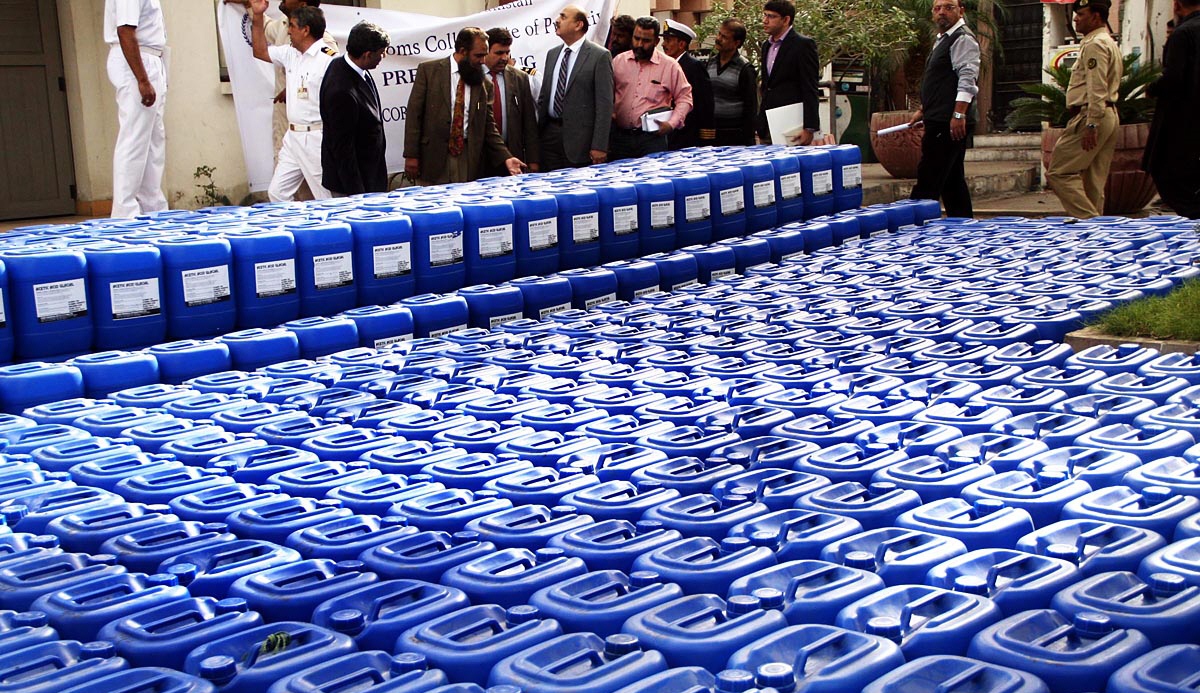
On March 15, 2016, Lahori Gate police conducted a raid at a house in Sutar Mandi and arrested a suspect, Faheem Shahzad, for preparing toxic liquor. They also recovered a large quantity of bottles of local and imported brands, chemicals and corks. An FIR was consequently registered.
Investigation officer, sub-inspector Akram, said the suspect was preparing toxic liquor for a long time. Akram added Shahzad would purchase empty bottles from those who deal in recyclable items and then fill them with his deadly concoction. Shahzad even prepared his own bottles at his own small manufacturing unit.
The second reason for toxic liquor is premature fermentation or some mistake in the distillation process while making desi sharaab (moonshine).
The second reason for toxic liquor is premature fermentation or some mistake in the distillation process while making desi sharaab (moonshine)
The hideouts or units where moonshine is prepared are commonly known as Bhattian. Manufacturers collect rotten fruits, pack them in a special utensil made of clay known as Kujja and bury it under the ground for a certain period of time. Fermentation then turns the fruits into alcohol.

The food scientist shared that decomposition occurs during fermentation which initially increases the bacteria. Later, the bacteria begin to die out and once that is complete so is the process of fermentation. However, the alcohol can be poisonous if consumed before the fermentation is complete. The scientist said greed and lack of experience or training plays a key role in manufacturing toxic liquor. Greed compels the manufacturer to sell more and, thus, not wait for the fermentation process to be complete. Sometimes, the manufacturer makes a mistake in identifying the maturity of the fermentation process due to lack of experience or training.
After fermentation, the alcohol needs to be distilled properly so that no impurities remain in it. During this process, the alcohol is heated to a certain temperature to turn the liquid into vapour which is then condensed. If not performed properly, the distillation process can fail to rid the alcohol of impurities and render it poisonous.
A medical examiner at Jinnah Hospital’s morgue said a large number of deaths are reported during the time of festivals such as Eid, Christmas, New Year, Holi, etc. Since the demand for alcohol increases during the time of celebrations, so does the probability of people procuring tainted liquor as more and more suppliers look to reap quick and easy profit.
A medical examiner at Jinnah Hospital’s morgue said a large number of deaths are reported during the time of festivals such as Eid, Christmas, New Year, Holi, etc.
Hangover of denial
A professor at the Sociology Department of Punjab University, Muhammad Zakria Zakir, said people consume moonshine and put their lives at risk because of the scourge of addiction.
Zakir said such problems are prevalent in our society but we choose to live in a state of denial. “Our society acts on the assumption that no one drinks in Pakistan,” explained Zakir. He said that unless one admits to a problem, they cannot think of a solution. “Once we admit to the fact that people drink in Pakistan, we can think about taking precautionary measures against toxic liquor. Sharaab ki bhattian have been operational for centuries but there has been no legislation to address the matter.”
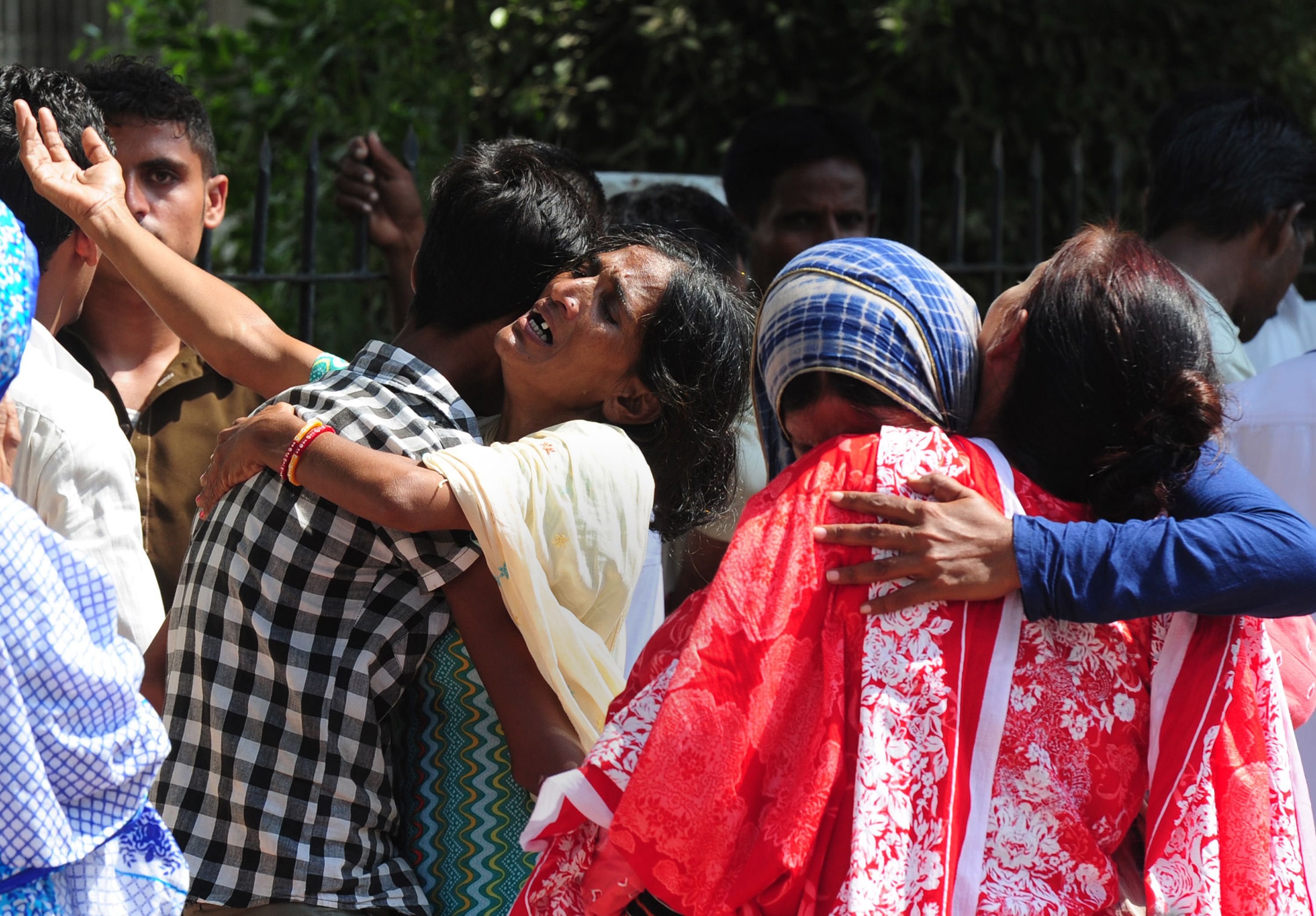
In developed countries, liquor manufacturers are properly trained. In Pakistan, there is no procedure for quality control, said Zakir. He added in most cases people do not report casualties because of the stigma attached. People often do not go to hospitals when they fall ill from consuming toxic liquor for fear of being morally belittled.
Professor Zakir said in most cases, people do not report casualties because of the stigma attached. People often do not go to hospitals when they fall ill from consuming toxic liquor for fear of being morally belittled
Clearing the head
Model Town SP Operations Mustansir Feroz said social consciousness is imperative to address the problem. Giving an example of the prevalent attitude, he said over a dozen people died in Youhanabad due to toxic liquor but not a single person was willing to file a complaint. Eventually, it was the police that had to take unilateral action. He also lamented how a suspect earlier arrested over allegations of supplying poisonous liquor was released on bail two days before the incident in Youhanabad.
Model Town SP Operations Mustansir Feroz said over a dozen people died in Youhanabad due to toxic liquor but not a single person was willing to file a complaint
DIG Operations Dr Haider Ashraf said policing was not the only solution to the problem. He lamented the police could not regulate people’s habits and instead only keep a check on the transportation and manufacturing of liquor. “Even if the police seized four bottles, the fifth one will make its way to the consumer, albeit at a higher price.”
Ashraf said education, social awareness and peer pressure can help tackle the problem. He also suggested establishing rehabilitation centres. When asked if legalisation could help solve the problem, Ashraf refused to comment.
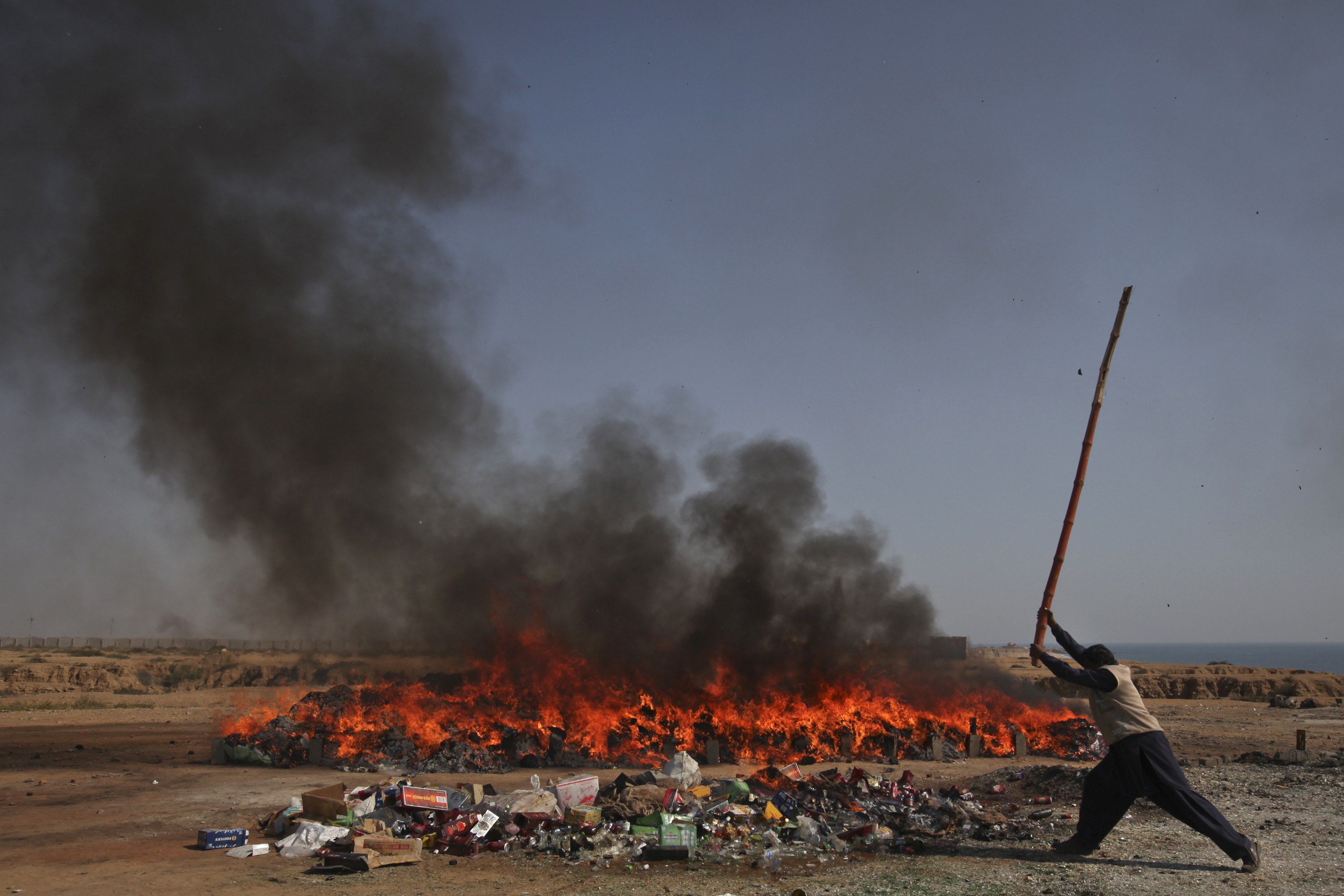
Jamaat-e-Islami MPA Dr Syed Waseem Akhtar advocated a two-pronged approach. The first level, he said, was deterrence through state machinery, while the second constituted spreading awareness. Citing the need for proper legislation, the MPA stressed murder cases need to be registered against those manufacturing liquor illegally.
Akhtar said manufacturing liquor at home or hideouts was not possible without the compliance of government institutions. Thus, strict action should be taken the by district excise and taxation officer, DPO or SHO to crackdown on the illegal practice. He also said the state should employ adequate resources to properly educate people about the negative effects of alcohol and deter its consumption.
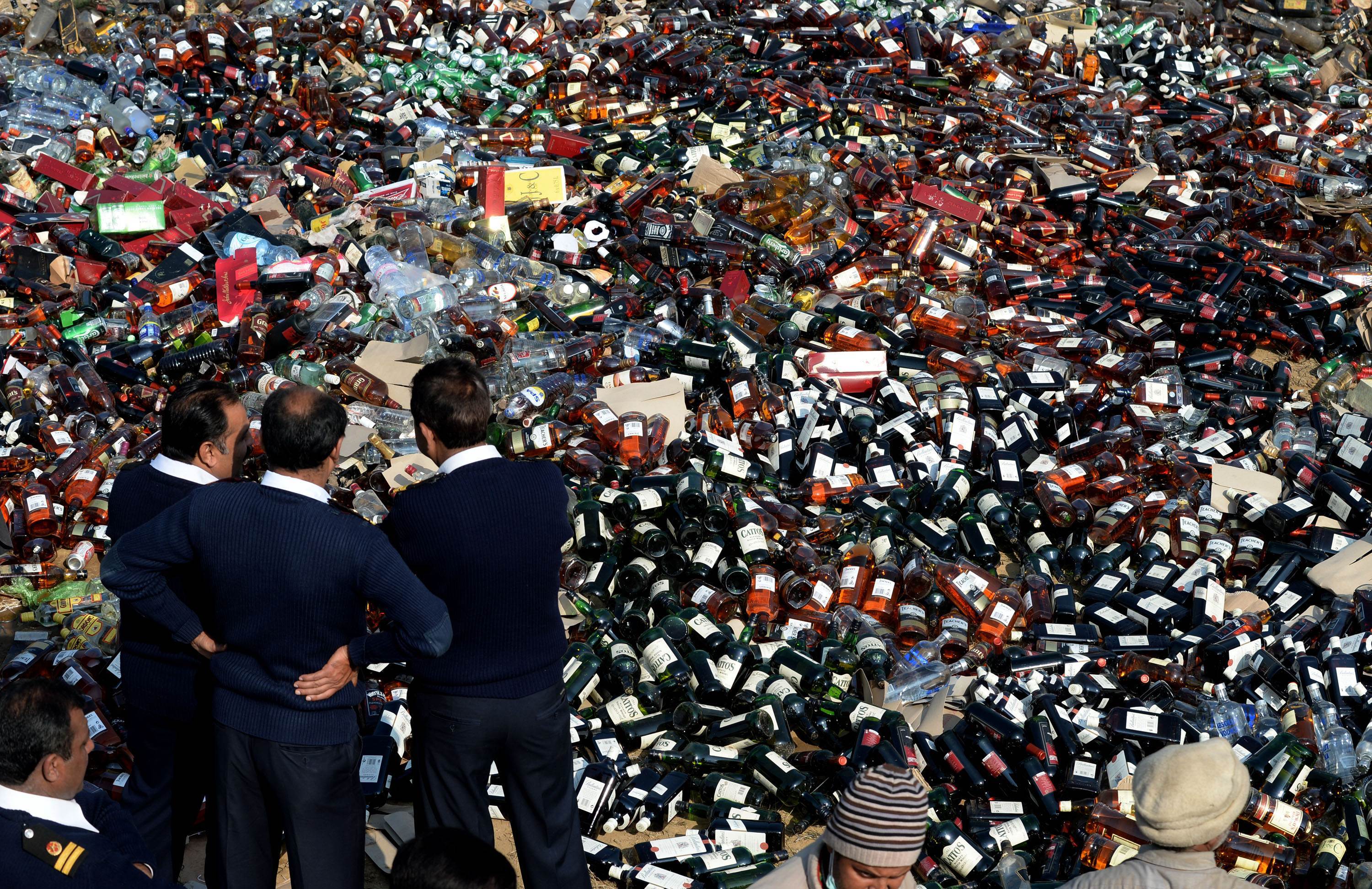
Professor Zakir, too, suggests a multi-pronged approach. He said the problem should not just be approached theologically, but also scientifically. He stressed lives of an entire household depended on the life of a man, who may be a father, husband or son – a source of emotional or financial support. He added a man’s criminal habit should not cost him his life. As an example, Zakir said one-wheeling is also a crime, but someone who has an accident while attempting it also had the right to medical attention at a hospital.
"Our society acts on the assumption that no one drinks in Pakistan. Once we admit to the fact that people drink in Pakistan, we can think about taking precautionary measures against toxic liquor" -- Professor at Punjab University, Muhammad Zakria Zakir
Zakir suggested establishing a government department where the toxicity of liquor can be checked anonymously. He added a person who falls ill from consuming toxic liquor should be able to get treatment at a hospital without fear of any kind of retribution.
Zakir said NGOs could help in the matter if the government was hesitant. Reiterating the counter-productivity that denial yields, he said many also assume there is no prostitution in our society but NGOs are working with sex workers to impart awareness and limit the spread of AIDS.
2016:
-
January 19:
14 dead in Youhanabad and Liaquatabad in Lahore
-
March 24:
55 dead in Tando Muhammad Khan
2015:
-
April 29:
One dead in Sukkur
-
June 28:
18 dead in Karachi
-
Dec 28:
Four dead in Karachi
2014
-
May 14:
Five dead in Nawabshah
-
June 29:
Eight dead in Kahuta
-
June 29:
Six dead in Azad Kashmir
-
July 26:
Seven dead in Rahim Yar Khan
-
Oct 10:
32 dead in Karachi
-
Oct 3:
17 dead in Hyderabad
-
Oct 27:
Four dead in Hyderabad
2013
-
July 28:
21 people in Faisalabad died
-
August 11:
10 dead in Karachi
-
Oct 18:
5 dead in Larkana